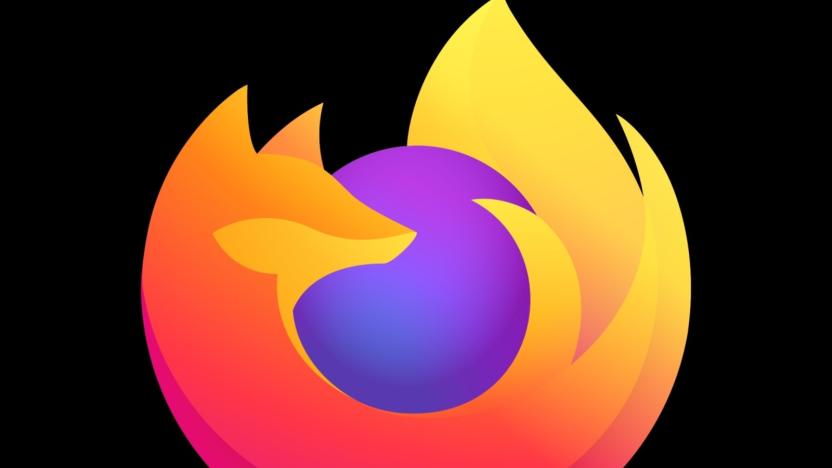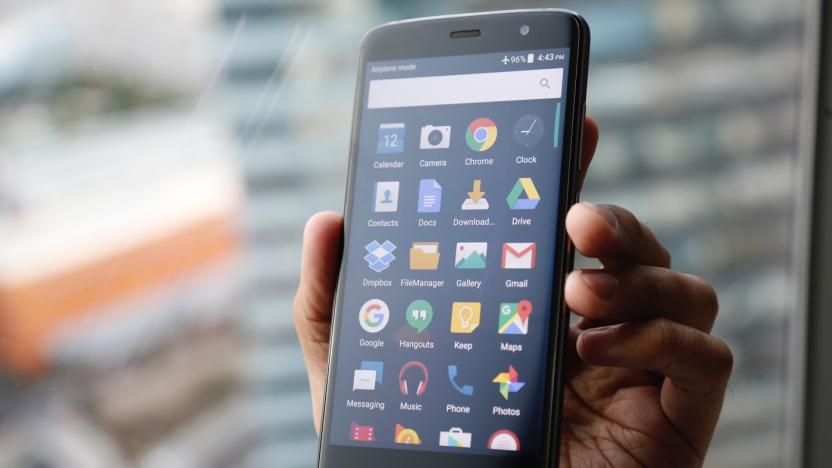avast
Latest

Avast is shutting down its subsidiary that sold user data
Avast is shutting down its Jumpshot subsidiary after a joint investigation by Motherboard and PCMag found that the two were selling user data to a host of large companies such as Expedia, Intuit and Keurig. The news comes just days after the two publications published their reporting.
Igor Bonifacic01.30.2020
Avast packaged detailed user data to be sold for millions of dollars
The popular antivirus program Avast has been selling users data to giant companies like Google, Home Depot, Microsoft and Pepsi, a joint investigation by Motherboard and PCMag found. Avast reportedly scraped data from its antivirus software and handed it off to its subsidiary Jumpshot, which repackaged the data and sold it, sometimes for millions of dollars. While Avast required users to opt-in to this data sharing, the investigation found that many were unaware that Jumpshot was selling their data.
Christine Fisher01.27.2020
Mozilla pulls four Firefox add-ons over excessive data collection
Browser security extensions aren't automatically safer -- they might even make things worse. Mozilla has pulled Avast's Online Security and SafePrice extensions for Firefox, plus their AVG-branded equivalents, after AdBlock Plus creator Wladimir Palant found they were collecting much more data than necessary. This included a detailed web history that went well beyond site addresses and search history, including when and how long you visit a site, what you click, the number of open tabs and even when you switch to another tab. Mozilla's policies explicitly forbid this kind of fine-grained collection.
Jon Fingas12.04.2019
Google pulls stalking apps from the Play Store
It's one thing to voluntarily share your phone activities with friends and family, but some app developers have been encouraging far more sinister uses. Google has pulled multiple people-tracking Android apps from the Play Store after Avast discovered that they're largely meant to enable stalking. Once the would-be spy has physical access to the target's phone, they install a tracking app that collects sensitive details like location, text messages and call history. They even help snoops hide evidence of the apps -- you won't find icons or other telltale clues. After that, the stalker can watch their victim through a desktop.
Jon Fingas07.17.2019
Report finds Android malware pre-installed on hundreds of phones
Even if you're careful about avoiding sketchy websites and apps, there's nothing you can do if your smartphone has malware built in. That's actually the case with hundreds of different smartphones, according to Avast Threat Labs. The researchers found adware installed mostly on devices not certified by Google from manufacturers like ZTE, Archos and myPhone. Users with affected phones will see popup ads and other annoying problems, and because the adware is installed on a firmware level, it's incredibly difficult to remove.
Steve Dent05.24.2018
34 major tech companies are uniting to fight cyberattacks
Cyberattacks are a global issue that can cause havoc regardless of who's involved, and key members of the tech industry are uniting in a bid to fight these attacks. A group of 34 companies has signed the Cybersecurity Tech Accord, an agreement promising to defend customers around the world from hacks regardless of where they take place or who the perpetrator might be. They're promising to boost defenses for customers (including users' capacity to defend themselves), establish more partnerships to share threats and vulnerabilities, and -- importantly -- refuse to assist governments in launching cyberattacks.
Jon Fingas04.17.2018
Avast claims its secure browser is 30 percent faster than yours
Avast has updated its browser to give users greater control over their online privacy. According to the company, its renamed Avast Secure Browser (formerly SafeZone) is designed to plug the security gaps that result from users' misplaced protection expectations. Features such as Stealth Mode, HTTPS Encryption, anti-tracking and anti-fingerprinting have been designed to account for the 69 percent of UK consumers who believe standard private-browsing modes will anonymize their identity, and the 81 percent who believe their browser would alert them to web-based threats, such as malicious cryptomining and extensions.
Rachel England04.05.2018
CCleaner malware had a specific target: tech titans
The malware that hackers inserted into legit downloads of popular PC-cleaning software CCleaner wasn't harmless after all. According to Cisco's Talos security division, it had specific targets: at least 20 tech titans, including Google, Samsung, Microsoft, Sony, HTC, Linksys, D-Link, and Cisco itself. Based on the data they got from someone involved in the CCleaner investigation, the Talos researchers have discovered that the attackers' main goal was to infect computers inside those companies' networks. The original malware was merely used to deliver a second malware, which can insert itself deeper into the system.
Mariella Moon09.21.2017
Hackers slipped malware into popular PC software CCleaner
A popular PC-cleaning software used by over 130 million people put users at risk after hackers were able to insert malware into legitimate downloads. Piriform's CCleaner, owned by antivirus provider Avast, was found to be hosting a "multi-stage malware payload" that could install ransomware or keyloggers and further infect target computers on command.
Matt Brian09.18.2017
Google engineer finds holes in three 'secure' browsers
It appears no anti-virus or security software is safe from Google Project Zero researcher Tavis Ormandy. After recently exposing holes in products from Trend Micro and AVG, the bug hunter has recently gone public with three issues found in software offered by security firms Avast, Comodo and Malwarebytes that allow attackers to access unsuspecting users' PCs.
Matt Brian02.04.2016
Kaspersky Lab: Macs not invulnerable to malware
The writing is on the wall. Our time of innocence is gone. Researchers from Kaspersky Labs claim Mac market share has finally reached the critical point, and the platform is now an attractive target for online criminals. Kaspersky told Ars Technica and other press on Thursday that, "Mac users can expect "more drive-by downloads, more Mac OS X mass-malware, and more cross-platform exploit kits with Mac-specific exploits." It's not all doom and gloom. Infections in the wild are still sparse, and Apple may slow the spread of future threats with the introduction of Gatekeeper in Mac OS X Mountain Lion. Among other things, Gatekeeper will prevent users from "unknowingly downloading and installing malicious software." If you don't want to wait for Gatekeeper, there's also several good antivirus solutions like Avast and Sophos that are available now for Mac users to download.
Kelly Hodgkins04.19.2012
Avast! Free Antivirus for Mac beta now available
Apple released Security Update 2011-003 yesterday with protection from the MacDefender malware and its variants, but some of our readers might want to do more to protect their Macs from malware. Avast has been a longtime supplier of a free (for non-commercial use) antivirus package for Windows that is unobtrusive and fast, so it was with a great deal of interest that I read a PR blast from the company this morning. The company has just released a beta of avast! Free Antivirus for Mac for download and testing, and like the Windows version of the software, it looks pretty good. The company previously had a download for Mac, but as noted in the user forums on the Avast site, "The current popularity of Apple products also makes them more interesting for the bad guys so we thought it would be good to prepare for the battle sooner rather than later." The result is a product that is much more on par with the Windows product. To install the downloaded beta app, you simply drag the application icon to the Applications folder and double-click to launch. The app uses Growl notification, so it helps if you have Growl pre-installed. The app has three shields that are in operation at all times: the File Shield, which scans the binaries of launched apps and all files that are being modified, the Web Shield, which monitors and filters all HTTP traffic coming from websites, and the Mail Shield, which monitors and filters all POP3 and IMAP traffic. In addition, avast! Free Antivirus for Mac can do on-demand scanning of the whole file system, network volumes, or mounted removable volumes. The scanning engine is updated automatically -- I'm just happy that it doesn't speak "virus database has been updated" the way the Windows version does because that has a tendency to startle me. Unfortunately, the app does seem to slow down page loading in Safari, and I'm sure it would do the same with Firefox and Chrome. Of course, this is beta-ware, so the Avast team will most likely work on optimizing their code as the product gets closer to general release. If you're considering antivirus software for Mac for yourself, relatives, or employees, you might want to take a look at the avast! Free Antivirus for Mac beta.
Steve Sande06.01.2011
Avast! update causing issues with WoW
Avast! anti-virus, which is used by millions of people around the world, recently upgraded to version 4.8. Unfortunately, it seems that this upgrade has caused many WoW players to have a drastically lower play experience.The most common symptom is severe keystroke lag while playing the World of Warcraft. Mouse actions also seem to be affected by this. Delays as low as a second and as high as five seconds between keystroke and the game receiving that action have been reported. Supposedly, running WoW in windowed mode fixes this, but your mileage may vary.
Alex Ziebart04.05.2008